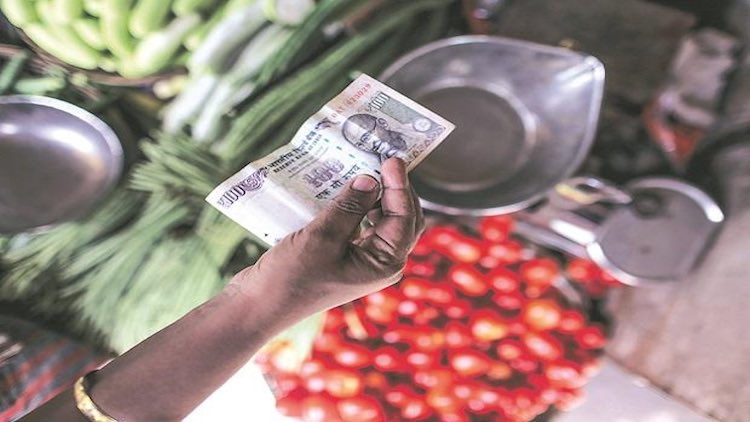World Food Prices On Rise Amid Pandemic & Economic Decline

World food prices rose for the seventh consecutive month in December, led by dairy products and vegetable oils, according to the Food and Agriculture Organisation of the United Nations as the pandemic and the consequent economic crisis deepen. Due to this, the poor are suffering the most due to inflation.
According to the FAO, the Food Price Index recorded 107.5 points in December 2020, up 2.2 percent from the month of November. The food price index averaged 97.9 during the whole year 2020, the highest in the last three years and 3.1 percent over 2019, according to the benchmark of food inflation measured by the United Nations.
According to the United Nations, cereal prices for all of 2020 stood at 6.6% above the 2019 level. The export prices of wheat, maize and rice also increased in December due to increased uncertainty over crops in North and South America as well as Russia. On an annual basis, rice export prices were 8.6 per cent higher in 2020 compared to 2019, while for maize and wheat were 7.6 per cent and 5.6 per cent respectively. The same was the case with vegetable oil which recorded a 4.7 per cent rise in prices in last December to reach its highest level since September 2012. In addition to ongoing supply shortages in major palm oil-producing countries, international trade was affected by a sharp hike in export duties in Indonesia. Due to long-standing strikes in Argentina, the oil extraction process and export activities there declined and this led to international prices of soy oil. Vegetable oil was 19.1 percent more expensive in 2020 than the previous year. Similarly, the demand for milk increased across the world, including Western Europe, and its prices rose by 3.2 percent in December, the seventh consecutive monthly increase in the previous year. However, in 2020, the dairy price index was 1.0 percent lower than in 2019. But these figures also show that there has been a decrease in the demand for meat products in the world during the COVID-19 period. While the prices of poultry products decreased due to bird flu cases from different countries, the demand for pork due to swine flu recorded a decline. As a result, the prices of meat products decreased by 4.5% in 2020 compared to 2019. These figures are going to raise concerns in India where 67% of the population is dependent on the Public Distribution System (PDS) for food. The National Food Security Act is in force in the country and about the government provides ration at cheap rates to 81.35 crore people. Now the government wants to reduce the people dependent on the ration because it has to reduce its food subsidy expenditure. India is such a poor country, where doing so would have an opposite effect.
According to the United Nations, cereal prices for all of 2020 stood at 6.6% above the 2019 level. The export prices of wheat, maize and rice also increased in December due to increased uncertainty over crops in North and South America as well as Russia. On an annual basis, rice export prices were 8.6 per cent higher in 2020 compared to 2019, while for maize and wheat were 7.6 per cent and 5.6 per cent respectively. The same was the case with vegetable oil which recorded a 4.7 per cent rise in prices in last December to reach its highest level since September 2012. In addition to ongoing supply shortages in major palm oil-producing countries, international trade was affected by a sharp hike in export duties in Indonesia. Due to long-standing strikes in Argentina, the oil extraction process and export activities there declined and this led to international prices of soy oil. Vegetable oil was 19.1 percent more expensive in 2020 than the previous year. Similarly, the demand for milk increased across the world, including Western Europe, and its prices rose by 3.2 percent in December, the seventh consecutive monthly increase in the previous year. However, in 2020, the dairy price index was 1.0 percent lower than in 2019. But these figures also show that there has been a decrease in the demand for meat products in the world during the COVID-19 period. While the prices of poultry products decreased due to bird flu cases from different countries, the demand for pork due to swine flu recorded a decline. As a result, the prices of meat products decreased by 4.5% in 2020 compared to 2019. These figures are going to raise concerns in India where 67% of the population is dependent on the Public Distribution System (PDS) for food. The National Food Security Act is in force in the country and about the government provides ration at cheap rates to 81.35 crore people. Now the government wants to reduce the people dependent on the ration because it has to reduce its food subsidy expenditure. India is such a poor country, where doing so would have an opposite effect.
Latest Videos
















